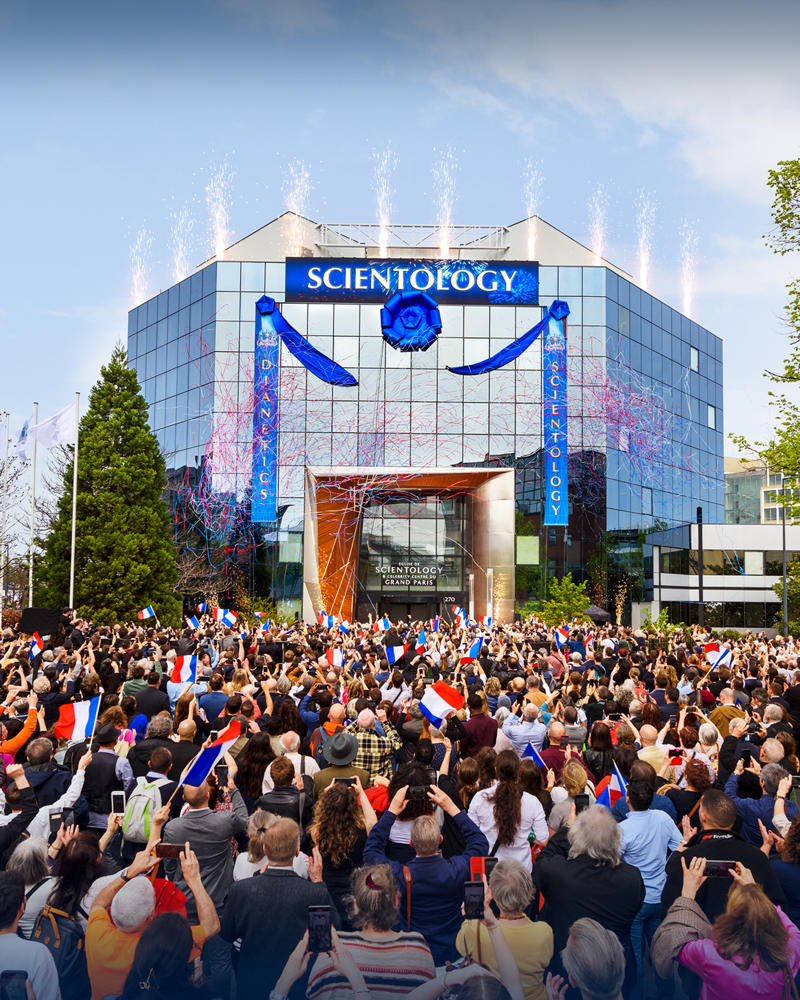The International Impact of Scientology: Growth and Effect Worldwide
The International Impact of Scientology: Growth and Effect Worldwide
Blog Article
Exposing Myths: Separating Reality From Fiction About Scientology

Origins of Scientology
The origins of Scientology trace back to the mid-20th century when L. Ron Hubbard, a scientific research fiction writer, founded the belief system in the 1950s. Hubbard's growth of Scientology stemmed from his earlier self-help system called Dianetics, which he introduced in the 1940s - Scientology. The shift from Dianetics to Scientology noted a change towards a more extensive spiritual ideology that incorporated aspects of psychology, Eastern spiritual traditions, and Hubbard's own concepts on human presence
Hubbard's expedition right into the human mind and spirit led to the creation of Scientology as a religious beliefs focused around the principle of spiritual knowledge and self-improvement through a process called auditing. Auditing, a form of spiritual counseling, aims to assist individuals get rid of psychological and psychological obstacles, called engrams, that prevent individual development and recognition.
As Hubbard's trainings gained popularity, Scientology evolved into a global activity with a significant following. Despite controversies and criticisms bordering its techniques and ideas, Scientology remains to draw in followers seeking spiritual fulfillment and individual growth.
Core Beliefs and Practices

One more essential element of Scientology is the idea of the Thetan, the spiritual significance of an individual that transcends the physical body. Followers aim to understand and strengthen their link to the Thetan via various methods such as research study courses and purification rituals.
The Church of Scientology additionally positions a solid focus on the value of personal responsibility and the belief that people have the power to shape their very own destinies. Via adherence to honest guidelines and the pursuit of self-improvement, professionals of Scientology make every effort to attain greater degrees of joy, success, and spiritual fulfillment.
Objections and disputes
Amidst Scientology's core beliefs and methods lies a landscape noted by conflicts and criticisms that have triggered intense dispute and examination. One of the major objections leveled against Scientology is its secretive nature and the claimed exploitation of its members. Former members have actually spoken out concerning sensation pressured to donate large amounts of cash to the Church and dealing with severe repercussions if they attempt to leave. Furthermore, Scientology's condition as a tax-exempt religious company in some countries has actually been a point of opinion, with critics suggesting that its practices are a lot more akin to an organization than a religion. Scientology.
One more location of conflict surrounds the Church's treatment of dissenters and doubters. Reports have arised of harassment, scare tactics, and lawful threats guided at those that speak up versus Scientology. This has actually elevated concerns regarding free speech and the company's dedication to openness and accountability.
While Scientology has vehemently rejected much of these accusations, the conflicts and objections surrounding i loved this the Church remain to fuel public suspicion and scrutiny.
Scientology's Influence in Society
With its presence in various industries of society, Scientology's influence can be observed in both subtle and overt methods, shaping understandings and interactions. In the realm of education, the Church of Scientology has encountered analysis for its initiatives to present its mentors right into schools with programs like "Applied Scholastics." Critics argue that such read review initiatives obscure the lines between church and state, potentially impacting the instructional experiences of students. In addition, Scientology's impact includes the world of psychological health, where its sights on psychiatry and psychology have actually stimulated arguments within the medical area. The church's anti-psychiatry position has actually resulted in hesitation and issues concerning the efficacy of psychological health and wellness treatments. In the world of amusement, Scientology's organization with high-profile celebs has actually accentuated the religious beliefs, both positively and negatively. The participation of well-known numbers in Scientology has, in many cases, served to promote the religious beliefs, while in others, it has attracted criticism and questioned about the church's methods and beliefs.
Debunking Common Misconceptions
The Church of Scientology is legally acknowledged as a faith in numerous countries, consisting of the United States, where it has tax-exempt standing. Like various other faiths, Scientology offers spiritual support and practices for its members.
One more false impression is that Scientology forces its members to cut ties with their households. In fact, the church stresses the relevance of household connections and urges members to maintain healthy and balanced links with their loved ones.

Verdict
To conclude, it is necessary to separate truth from fiction when reviewing Scientology. By analyzing its beginnings, core ideas, disputes, and impact in society, we can expose typical misunderstandings surrounding this religious beliefs. It is important to approach the topic with a objective and crucial state of mind in order to comprehend Scientology have a peek at this website accurately and without bias.
Rooted in a foundation of spiritual knowledge and individual growth, Scientology's core beliefs and techniques include a diverse range of concepts and routines. Central to Scientology is the belief that humans are never-ceasing spiritual beings who have forgotten their real nature. The involvement of famous figures in Scientology has, in some instances, served to popularize the faith, while in others, it has drawn objection and increased questions concerning the church's methods and beliefs.
The Church of Scientology is legally identified as a religious beliefs in many nations, including the United States, where it has tax-exempt standing. Like other religions, Scientology gives spiritual assistance and techniques for its participants.
Report this page